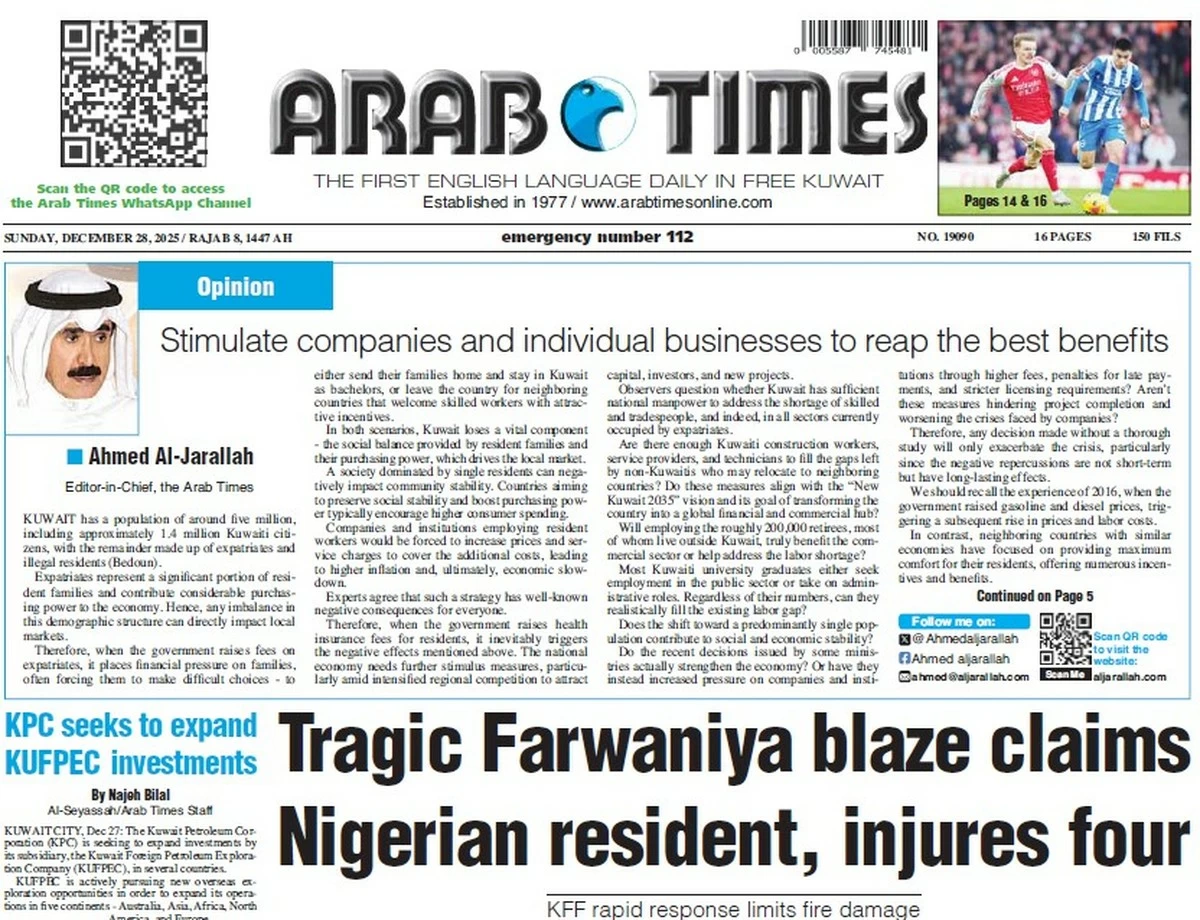25/02/2019
25/02/2019

FOR centuries, the relationship between Europe and the Arabs has been based on conflicts and wars. Such a history affected both sides which continue to endure the repercussions. This has been evident in the last five decades due to misconceptions on various issues.
This legacy shook economic and political relations – cold, friendly and tensed relations; but it did not break the dialogue ice which kept on rising with time in the absence of mutual tone built on the joint future of the region that represents about 20 percent of the world economy and possesses cultural ingredients needed to perform a role globally.
All of this is being put on the discussion table by countries participating in the first European Union (EU) and League of Arab States (LAS) Summit in Sharm El-Sheikh, Egypt, in order to thin out obstacles on the path of cooperation towards stability in the region and the world. On top of the summit’s agenda are issues related to anti-terrorism, illegal immigration and crises in the Arab world.
Majority of the Arabs attending the summit are in accord with the political outlook through which their countries made major strides in terms of cooperation among themselves – patterned from the path taken by Europe at the beginning.
The Gulf Cooperation Council (GCC) has become very close to the EU despite the ongoing crises.
This is in addition to cooperation between Egypt and Saudi Arabia in the implementation of major development projects like the bridge linking the two countries, as well as between Cairo and Abu Dhabi and other Gulf capitals to establish the Arab-Arab relationship which is different from the notion that prevailed in the past four decades.
On the other hand, the union continues to take root and it has become stronger in facing challenges in spite of differences among its members. Therefore, discussions between the two sides reflect positively on all aspects, especially in eliminating misconceptions related to the remedy that Arabs are using to treat the terrorism crisis which has transformed into a global challenge.
This will also clarify the Europeans’ misconception on procedures taken by other countries depending on theoretical concepts of human rights, let alone the fact that we witnessed the fall of such human rights slogans immediately after terrorism hit the European countries.
Given that the theme of the summit is “Investing in Stability,” the most vital challenge for both sides is the fact that some Middle Eastern countries support and breed terrorism; in addition to the hostile operations, some of which Europe has been experiencing since 1979 while the Arab world continues to endure them.
Consequently, the first step is for the EU to abandon hope on interim economic opportunities with Iran. Instead, it should strategically look into the threat posed by the Mullah regime to the future of the region and the world.
Today, it is possible for the countries gathering in Sharm El-Sheikh to make their way towards a new glory by grasping opportunities which are abundant in the world and the region. They should utilize the Arab pathway to Africa in order to deepen the development partnership.
Nonetheless, all this will not happen unless the past theories which ruined European-Arab relations are discarded and development becomes the main focus of the new stage.
By Ahmed Al-Jarallah
Editor-in-Chief, the Arab Times


